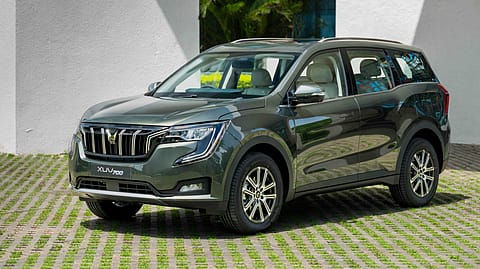Mahindra will honour all warranty commitments related to E20 fuel usage, issues advisory to customers and dealers
PK Banerjee, executive director of industry body SIAM, earlier said that no vehicle has so far broken down due to the prolonged use of E20 fuel.

Mahindra & Mahindra said on Thursday that it will honour all warranty commitments to its customers on account of using ethanol-blended petrol (E20). The homegrown automaker said that Mahindra engines are fully compliant with existing gasoline standards and all its vehicles can be operated safely with E20 fuel.
“Vehicles produced post April 1, 2025, are specially calibrated for E20 fuel to ensure acceleration and fuel efficiency. Earlier produced vehicles, whilst being completely safe to drive, could see a minor variation in either acceleration or fuel efficiency depending on driving behaviour,” the company said in a statement.
Motorists have recently taken to social media, complaining in droves that the prolonged use of ethanol-blended petrol can damage the internal components of the vehicle. The ilk is also concerned that, should any breakdown happen, the dealer can refuse to honour the warranty commitments, as the older vehicles were not manufactured to run on E20 petrol, which would, in turn, void the warranty.
Prashant K Banerjee, executive director of the industry body Society of Indian Automobile Manufacturers (SIAM), said in a press conference last month that the loss in fuel efficiency of vehicles, which has taken the public discourse by storm, is between 2% and 6%. It is contingent on a lot of factors, which include driving habits and how well the vehicle is maintained, among other things. However, in the future, the loss in fuel efficiency could be less, as the vehicles will be fine-tuned. Banerjee also said that SIAM has reported that no vehicle so far has broken down due to the prolonged use of E20 fuel.
Vikram Gulati, executive vice president of Toyota Kirloskar Motor, said in the press conference that most OEMs are now in the process of communicating to the dealers that any issues in the engines because of using E20 fuel cannot void the warranty of the vehicle, even if the owner’s manual of the vehicle prohibits using any other fuel other than specified. The panel also highlighted that the owner’s manual was written in a different era with different norms.
